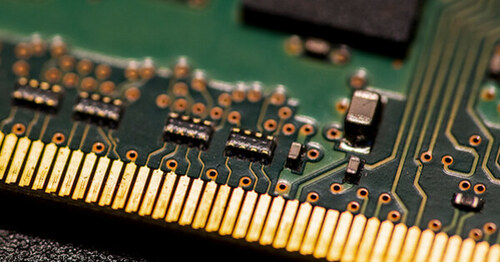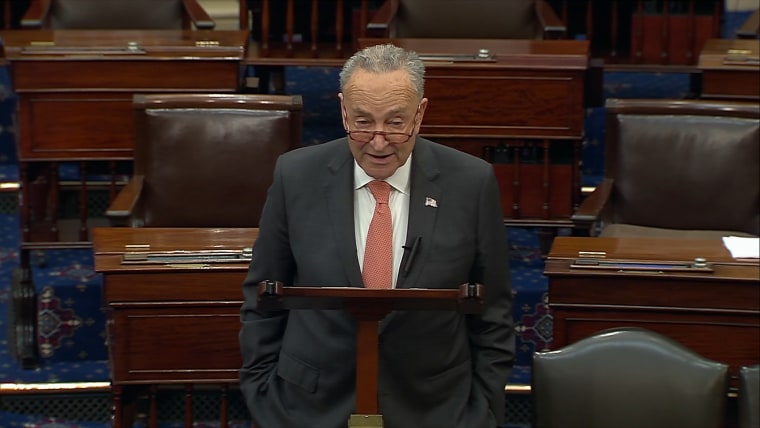
House passes major computer chips and science bill to compete with China
WASHINGTON — The House on Thursday passed a massive package aimed at boosting domestic production of computer chips and keeping America competitive with China.
The vote came one day after the Senate passed the package, known as “CHIPS-plus.” It now heads to President Joe Biden’s desk for his signature.
The bill passed 243-187, with most Republicans voting no and 24 Republicans bucking their own leadership and voting with Democrats. Rep. Sara Jacobs, D-Calif., voted present.
Schumer: Bill to boost computer chip production promotes 'American ingenuity'
July 27, 202201:26Although 17 Senate Republicans backed the chips bill on Wednesday, Minority Leader Kevin McCarthy, R-Calif., and Minority Whip Steve Scalise, R-La., had been whipping their rank-and-file members to vote against it during the past 24 hours, arguing it would funnel billions of taxpayer dollars in subsidies and tax credits to a "specific industry that does not need additional government handouts."
"It's ridiculous, out-of-control spending that we don't have the money for; it's turned into a monster," conservative Rep. Jody Hice, R-Ga., told NBC News before the vote.
But some influential Republicans had made the case that passing the chips package was critical for national security and taking on China.
Texas Rep. Mike McCaul, the top Republican on the Foreign Affairs Committee whose state is home to chipmakers, said he had been in close contact with Commerce Secretary Gina Raimondo, Biden's point person on CHIPS who has been briefing lawmakers. Raimondo has emphasized to members that Taiwan makes 90 percent of the world's advanced semiconductor chips.
If China invades Taiwan, McCaul said, "they will own the global market."
"Guess who came out today strongly opposed to the chips bill? The Chinese Communist Party," McCaul told reporters. "If you want to know who hates this bill, who lobbies against it, the Chinese Communist Party. Why? Because they know it'll help us compete against them."

The centerpiece of the package is more than $50 billion in subsidies for domestic semiconductor manufacturing and research. It also includes tens of billions of dollars more in authorizations for science and research programs, as well as for regional technology hubs around the country.
Supporters on Capitol Hill, as well as key members of Biden’s Cabinet, have also argued that making microchips at home — rather than relying on chipmakers in China, Taiwan and elsewhere — is critical to U.S. national security, especially when it comes to chips used for weapons and military equipment.
Biden urged the House to pass the bill earlier Thursday, asking members to “put politics aside” and “get it done” to help the economy. “We need to lower the cost of automobiles, appliances, smartphones, consumer electronics and so much more,” he said.
The Congressional Budget Office said CHIPS-plus would cost nearly $80 billion over the next decade.







